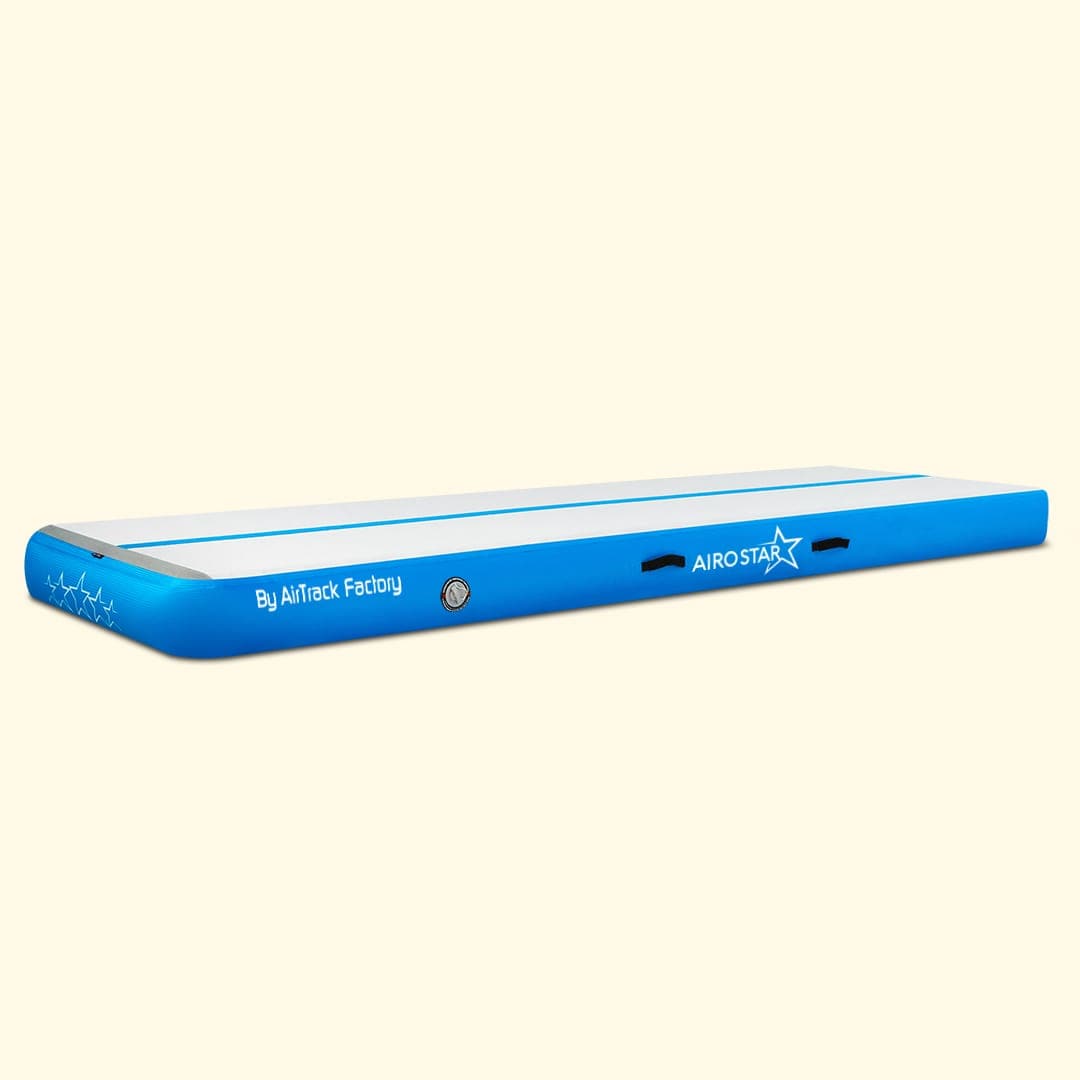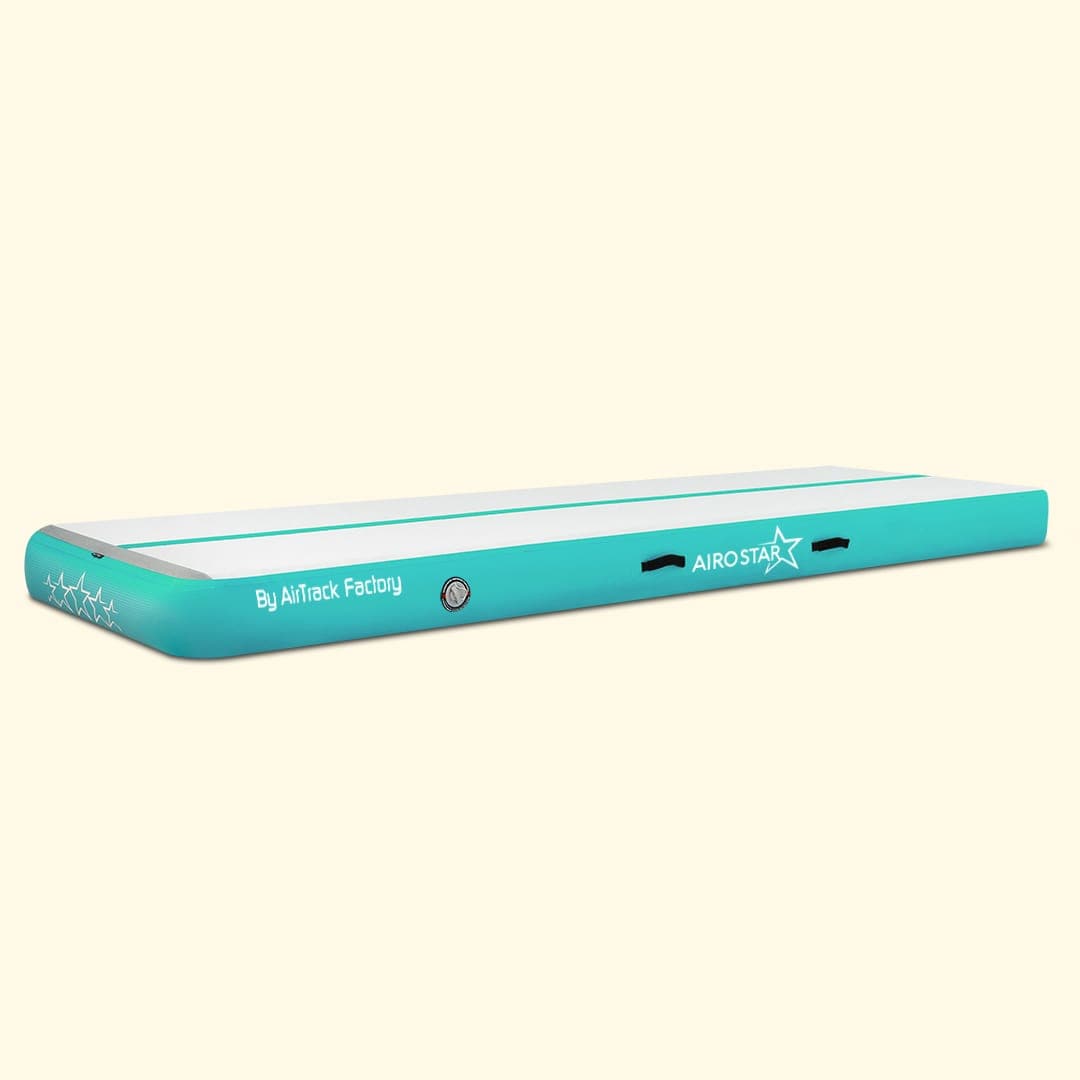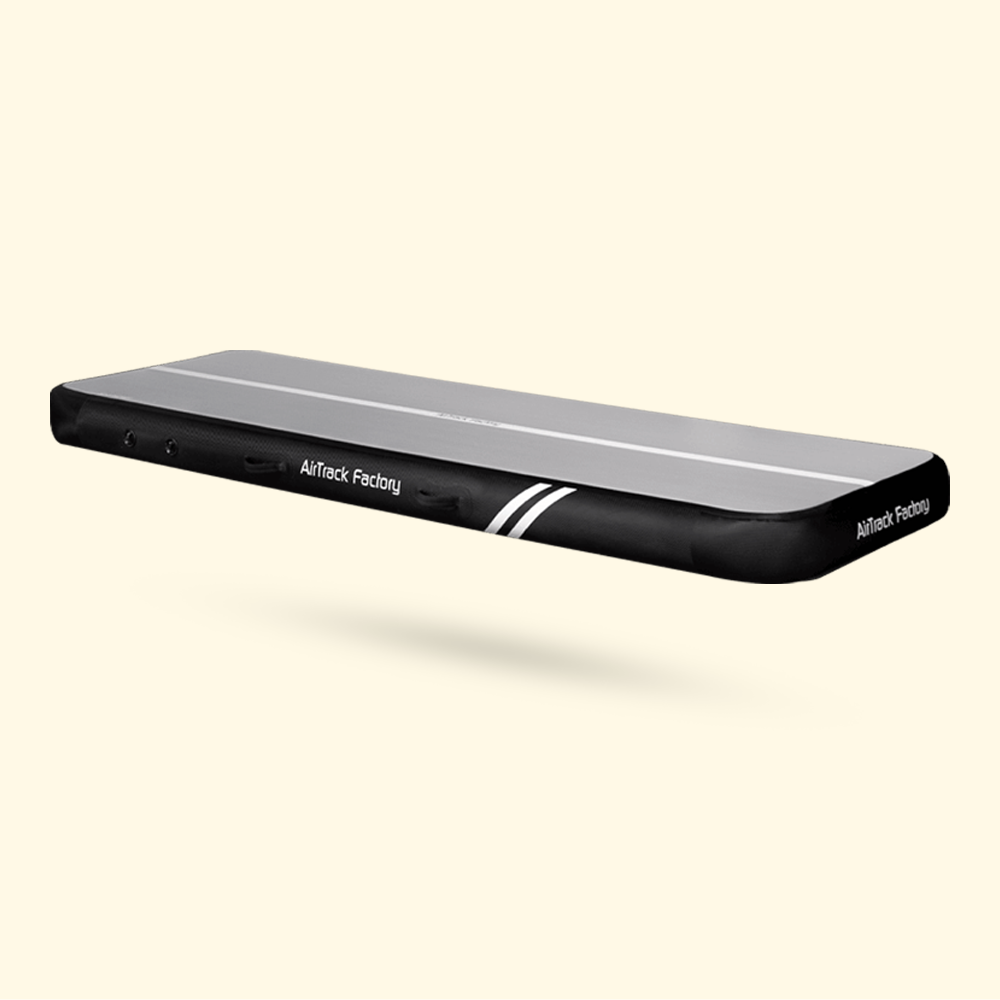What are the Differences Between the AirTrack 10 or 20 cm?
When it comes to choosing the right AirTrack for your gymnastics or athletic training, one of the key decisions you'll face is selecting the thickness of the mat. AirTracks come in various thicknesses, with 10 cm and 20 cm being two of the most popular options. Understanding the differences between these thicknesses can help you make a more informed decision based on your specific training needs and goals. This article will explore the differences between the 10 cm and 20 cm AirTrack mats, helping you decide which is better suited for your practice.
Understanding AirTrack Thickness
The thickness of an AirTrack mat significantly influences its functionality and suitability for different types of exercises. The 10 cm thick AirTrack is typically lighter and easier to handle, making it a convenient choice for those who require a mat that is easy to set up and store. In contrast, the 20 cm thick AirTrack offers more cushioning and bounce, which can be particularly beneficial for athletes engaging in high-impact sports or activities that require extra protection and comfort.
Who Should Choose the 10 cm AirTrack?
The 10 cm AirTrack is an excellent choice for younger athletes or beginners. Its slightly firmer surface provides stable support, making it easier for novices to maintain balance and control while learning new skills. This thickness is also ideal for schools, gyms, and home use where space may be limited and the mat needs to be stored away easily when not in use. Additionally, the 10 cm mat is generally more affordable, which can be a significant advantage for individuals or institutions with tight budgets.
Storage and Portability
Another aspect to consider when selecting your AirTrack is storage and portability. The 10 cm thick mats are generally lighter and more compact, making them easier to roll up and store away when space is at a premium. They are ideal for home use where they might need to be moved frequently or stored in small spaces. On the other hand, while the 20 cm mats offer more cushioning, they are also bulkier and require more storage space, which might not be ideal for every situation.
Benefits of the 20 cm AirTrack
For more experienced gymnasts or athletes who perform complex, high-impact routines, the 20 cm AirTrack is often the preferred choice. This thickness provides enhanced cushioning and rebound, which helps in reducing the risk of injuries during intense training sessions. The additional padding absorbs impact more effectively, which is crucial for activities like tumbling, cheerleading, or martial arts where athletes may be executing high jumps and landings.
Safety Considerations
When choosing the thickness of your AirTrack, safety should be a top priority. A thicker AirTrack, like the 20 cm option, is often recommended for activities that involve higher altitudes and increased risks, such as advanced gymnastics maneuvers. The additional thickness provides a safer landing surface, reducing the impact on joints and decreasing the risk of injuries. For parents and coaches, ensuring the safety of young athletes or beginners is crucial, and opting for a thicker mat can offer that extra peace of mind during practice sessions.
Comparative Durability and Performance
Both the 10 cm and 20 cm AirTrack mats are designed to offer durability and high performance. However, the 20 cm mat, with its extra cushioning, tends to withstand repeated heavy use better than its thinner counterpart. This makes it a wise investment for commercial settings or frequent training sessions where the mat undergoes constant wear and tear.
Versatility in Training
The choice between a 10 cm and a 20 cm AirTrack also depends on the versatility required in your training regimen. Our AirTrack offers gymnasts the opportunity to optimize their performances. The shock-absorbing, non-slip inflatable gymnastics mat is available in various sizes and thicknesses, making it suitable for any exercise. You have the choice of a 3, 4, 5, or 6-meter-long training mat, where you can also choose between 10 or 20 cm thickness. Always use an AirTrack for a safe, comfortable training that takes you to new heights. This versatility is crucial for adapting to different skill levels and training needs.
Long-Term Investment and Value
Finally, consider the long-term investment and value of your AirTrack. While the initial cost may be higher for a 20 cm thick mat, the durability and extended lifespan can provide better value over time, especially for frequent users or athletic facilities. Conversely, the 10 cm mat can be a cost-effective option for those with lighter training schedules or who are just starting out and may not require the extra durability that professional athletes might need.
Making the Right Choice
Ultimately, the choice between a 10 cm and 20 cm AirTrack should be based on your specific training needs, the level of impact involved in your exercises, and your budget. Consider what will be most beneficial for your training style and the types of activities you are engaged in.
For those involved in lower impact exercises or for younger children, the 10 cm thick AirTrack may be sufficient and more practical. However, for advanced gymnasts, cheerleaders, or anyone involved in high-impact activities, the 20 cm thick AirTrack provides additional safety and comfort, making it a better option.
Conclusion
Selecting the right AirTrack thickness is essential for maximizing your training effectiveness and ensuring safety. Whether you choose a 10 cm or 20 cm thick AirTrack, both options provide reliable performance and can significantly enhance your ability to train effectively at home or in a professional setting. Understanding the specific benefits of each thickness allows you to make an informed decision that aligns with your athletic goals and provides the support you need to excel in your sport. Furthermore, the right choice helps prevent injuries and boosts your confidence by offering a stable and responsive surface for all levels of athletic activities.








